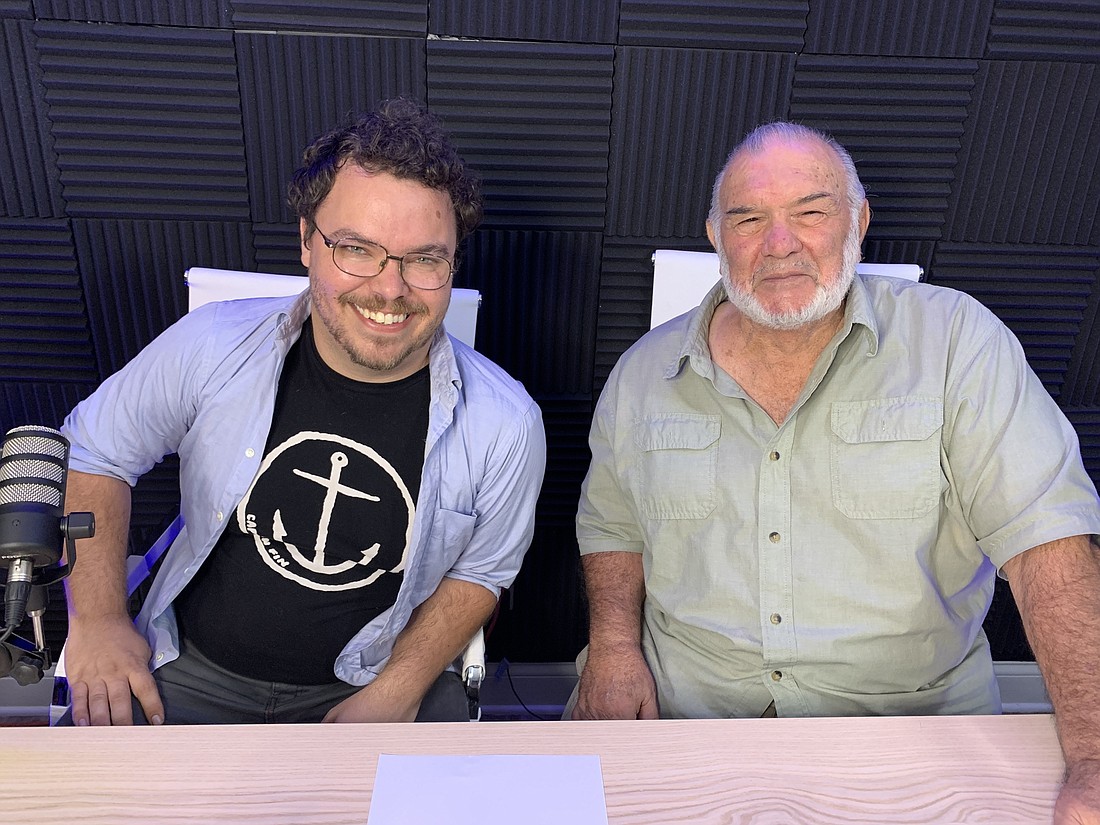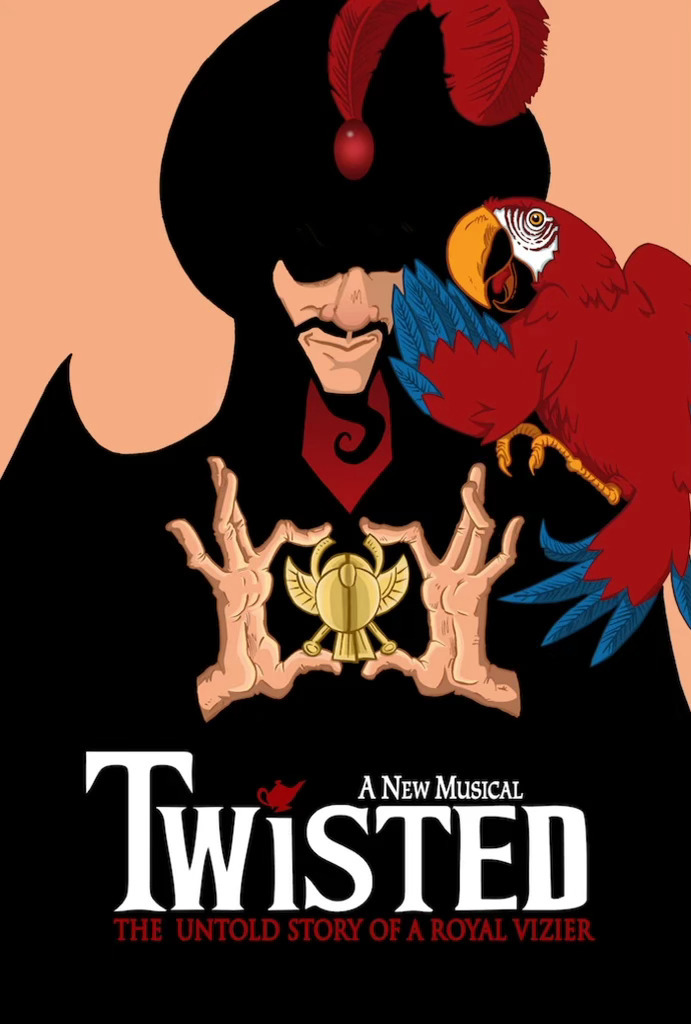- February 7, 2025
-
-
Loading

Loading

City Repertory Theatre is back on its home stage, Aug. 5-8, in City Marketplace, with "Twisted." It's a parody of Disney’s “Aladdin,” with plenty of curse words. Directed by Beau Wade, the show was originally planned for 2020, but it was derailed by the pandemic. Wade and CRT co-founder John Sbordone, who have been working intensely together for the past five years, met me for an upcoming episode of the Palm Coast Observer’s YouTube show, “Observations.” Here’s a peek at the interview.
What’s better, talking politics or talking art?
Wade: Usually they’re intertwined.
Sbordone: Politics — isn’t that fiction?
What is one thing you’ve learned from John Sbordone about directing?
Wade: You have to trust yourself and not worry about how other people might view what you’re doing. If you have a vision, you put that on the stage; you don’t let the actors, or someone else, dictate what you’re doing and get in the way of the art.
On a specific note, John said that 50% of directing is casting, so it’s really not until you get all the pieces in there together that a vision really takes place. You have to be adaptable.
You put a lot of trust in someone to let him direct a show. What did you see in Beau Wade that made you decide he could direct for you?
Sbordone: I think my common refrain to Beau these days, outside of what he does inside the theater, is read, read, read. It’s necessary for the director to have a vision of the world that the play works in.
Rick de Yampert, in a FlaglerLive article, called Beau Wade “the hardest working man in area theater.” Do you ever take a play off?
Wade: Oh, no. Before the pandemic, from 2014 to 2016, then 2017-2020, I was doing about 10-12 plays a year, mostly as an actor.
On a Facebook post, Beau, you said this regarding live theater: “The audience is always going to be the final puzzle piece.” What do you mean by that?
Wade: In theater, if you have actors on stage doing something and there’s nobody to watch, it’s that old adage: "If a tree falls in a forest and nobody’s around, does it make a sound?" If you’re on the stage and you’re performing for no one, are you really making art, or are you just having fun playing pretend? An audience can vastly change your show, the energy you have going between the audience and the actors on the stage.
What is the value of a small theater in a community like Palm Coast?
Sbordone: Theater is the ultimate live communication. The intimacy of our space makes that communication all the more intense and all the more possible. We try to make it an interactive experience. Otherwise, why not watch TV?
Why do so many plays have sad, complicated endings?
Sbordone: If art is a reflection of life, then the creations that we make about that life need to reflect that in an honest way. So while there are certainly happy experiences in life, many experiences that are dealt with many serious playwrights are about surviving, about coping, about relationships.
Wade: In Hollywood, you have a lot of feel-good endings; that’s not something you have a lot of in theater. People who write plays usually are trying to get at a subject that hasn’t been touched on as much.
StarKid Productions, which wrote “Twisted,” was founded in 2009 and first became known for "A Very Potter Musical," a parody of the Harry Potter series. Now, StarKid produces musicals on YouTube and has 729,000 subscribers. How did you come across StarKid?
Wade: I saw “A Very Potter Musical” in 2009, and then one day I happened to see “Twisted” on YouTube, and I’ve wanted to perform in it or direct it ever since then.

In the Disney version, there’s not much sympathy for Jafar. What do you get from humanizing a villain?
Wade: Nowadays, we have a lot of reboots. “Twisted” reboots a story from a different character’s perspective, and by humanizing Jafar — at the same time, they villainize Aladdin — you get to see how perception can color how they view events. It’s a nice look at why the bad guy did what he did.
Sbordone: Humanizing a villain is the history of modern literature. Despite my reluctance to like “Twisted,” having been at rehearsal night after night, I’m growing to appreciate it. It’s a lot of fun. I don’t think you do parodies for knowledge. You’re entertaining the audience.
Wade: By making it fun and entertaining, StarKid is able to sneak in these nuggets of emotion and see more than what should be there.
Vladimir Nabokov made this distinction: "Satire is a lesson, parody is a game.” Is “Twisted” a lesson or a game?
Wade: I would say a game. But there are moments when it’s really scratching the surface of satire.
Sbordone: There are probably going to be people coming into the theater who aren’t familiar with Disney’s “Aladdin,” but you can appreciate the show without being familiar.
Wade: One of the reasons parody has been an art form for so long is when you take a story you already know, you don’t have to do a lot of the backstory and characterization. And when you subvert the expectation, it really lands.
What is the future of musical theater? Will “Twisted” be parodied next?
Sbordone: The theater is constantly renewing itself. You go back to the Greeks: Aristophanes was doing the same thing with the stories of his time as StarKid is doing now. And that will continue to evolve.
There are so many new things in theater that people will look at today and go — [uncomfortable, squeamish] — and then it will be commonplace 15 years from now. There will constantly be brilliance, and that brilliance will see the world in a slightly different way, and art will then follow that.